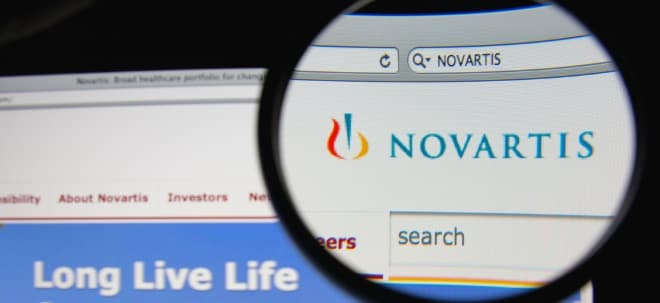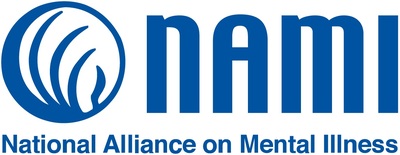Celebrating Three Years of the 988 Crisis Line: Awareness Grows but Americans Want Improvements to Mental Health Care, New NAMI Poll Shows
NAMI urges policymakers to build on 988's promise and close critical gaps in mental health services.
ARLINGTON, Va., July 16, 2025 /PRNewswire/ -- Marking today's third anniversary of 988 becoming available nationwide, the National Alliance on Mental Illness (NAMI) released new resources highlighting the continued need for policymakers across the country to invest in and expand mental health crisis services. While awareness of the 988 Suicide & Crisis Lifeline has risen to its highest level since NAMI began tracking in 2021, new NAMI polling and a state legislation brief both highlight opportunities for policymakers to better support people experiencing a mental health crisis — amid broader concerns about the state of mental health care in the U.S.
"Too many people in our country can't get the help they need and don't know where to turn for support. But 988 is changing that, which is why it is so encouraging to witness the growing awareness of 988," said NAMI CEO Daniel H. Gillison, Jr. "Seeing and hearing how 988 has impacted and saved lives fuels our work at NAMI to advocate for 988 and crisis services. As we mark today's anniversary, we must also look at the opportunities in front of us to ensure everyone in a mental health crisis can receive help, not handcuffs. I hope policymakers at every level, in every community, continue to seize this chance to strengthen the crisis systems people with mental illness need and deserve."
NAMI and Ipsos have been tracking public perception of the 988 Suicide & Crisis Lifeline since October 2021, measuring the impact of efforts to build awareness about this lifesaving resource. Today's poll data find that awareness of 988 is at an all-time high, with roughly three-quarters of Americans (74%) having at least heard of 988, with 28% of people indicating they are familiar with the service. This is up dramatically from September 2022, shortly after 988 became available (44% aware/14% familiar), and it shows improvement from even a year ago (67% aware/23% familiar).
The Substance Use and Mental Health Services Administration (SAMHSA) data through the end of May show that nearly 16.5 million people have reached out to 988 for help in the last three years. Recent changes announced to the LGBTQ+ specialized services in 988 may be contributing to people believing that all of 988 is impacted. Only 1 in 10 Americans (9%) correctly knew that 988 is still funded by the federal government, highlighting the need for both public and nonprofit leaders to reinforce that 988 is a resource and will remain available. There is strong bipartisan support to continue funding 988 at high levels to provide immediate crisis support.
The poll also shows concerns about the state of mental health care in the U.S. More people (50%) have an unfavorable view of the U.S. mental health care system than a favorable view (44%), and three-quarters (73%) are not content with the status of mental health treatment in this country. As the country now deals with the repercussions of the passage of the One Big Beautiful Bill Act earlier this month, 59% believe that Medicaid saves lives by helping people access mental health care while two-thirds (66%) believe Medicaid funding cuts would lead to worse health outcomes for low-income individuals and families.
Related to 988 and mental health crisis services, today's NAMI-Ipsos poll also finds:
- With the recent Administration announcement that it is eliminating the LGBTQ+ Youth and Young Adult Specialized Services in 988 (effective tomorrow, July 17), a move NAMI opposes, most support continuing funding for the service. Overall, nearly four in five respondents (79%) felt that young people need more mental health resources dedicated to them and their unique needs. With LGBTQ+ youth are up to four times more likely to attempt suicide than their peers, people support more targeted resources for this community. Three in five Americans (60%) support funding 988 specialized services.
- More people are reaching out to 988, and people are largely getting the help they need. Roughly 1 in 10 people (8%) have contacted 988 for themselves or someone else, and 71% indicate that they got some or all of the help they needed. More than half of people (54%) indicate that speaking to someone immediately is the most important factor in contacting 988 in a crisis, but about half of people (46%) aren't sure when a situation is serious enough to contact 988 – both of which point to the need to continue investing in and educating people about this resource.
- Fortunately, policymakers have public support to fund and build crisis systems in their communities. At the federal level, 86% of Americans believe that funding 988 should be a priority for Congress, with more than half of U.S. adults saying that mental health care (62%), suicide prevention programs (54%), and the 988 Suicide & Crisis Lifeline (53%) should be high priorities for federal funding in Congress. At the state level, 82% of people support state funding for 988 and crisis response services.
In addition to the new polling data, NAMI today also released its latest state legislative issue brief on crisis services, Trends in State Policy: 988 and Reimagining Crisis Response. While 988 is a federal initiative, its success continues to depend heavily on how states choose to fund and implement it. The brief highlights successful 2024 state legislation around 988 and crisis care and offers policy recommendations for how states can improve crisis systems.
Three in four people are willing to pay a small monthly fee on their phone bill to fund 988, similar to what they already pay for 911 services. Currently, 12 states have implemented such a fee, which NAMI tracks, to fund 988 and associated crisis response services. With more than a third of people (39%) willing to pay a fee greater than the highest existing fee ($0.60), NAMI calls on more state policymakers to follow suit and implement their own sustainable funding. NAMI's state legislative brief details the revenue brought in from these existing fees.
"If you or someone you know is in crisis, please remember you are not alone. Call or text 988 for support," Gillison said. "Mental health touches every family and every community — no matter who you are or where you live. We need leaders at every level to keep building strong crisis response systems so that when someone needs help, they have someone to contact, someone to respond, and a safe place for help."
Visit the NAMI-led Reimagine Crisis initiative to learn more.
This NAMI/Ipsos poll was conducted June 20 – 22, 2025, by Ipsos using the probability-based KnowledgePanel®. This poll is based on a nationally representative probability sample of 2,022 general population adults age 18 or older. The survey has a margin of error of ± 2.3 percentage points. Learn more about the poll methodology here
The National Alliance on Mental Illness, is the nation's largest grassroots mental health organization dedicated to improving the lives of individuals and families affected by mental illness
Join the conversation: NAMI.org | Facebook.com/nami | Instagram.com/namicommunicate | Twitter.com/namicommunicate | TikTok.com/@nami | LinkedIn.com/company/nami | YouTube.com/NAMIvideo
![]() View original content to download multimedia:https://www.prnewswire.com/news-releases/celebrating-three-years-of-the-988-crisis-line-awareness-grows-but-americans-want-improvements-to-mental-health-care-new-nami-poll-shows-302506639.html
View original content to download multimedia:https://www.prnewswire.com/news-releases/celebrating-three-years-of-the-988-crisis-line-awareness-grows-but-americans-want-improvements-to-mental-health-care-new-nami-poll-shows-302506639.html
SOURCE National Alliance on Mental Illness (NAMI)


